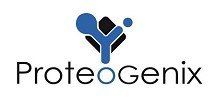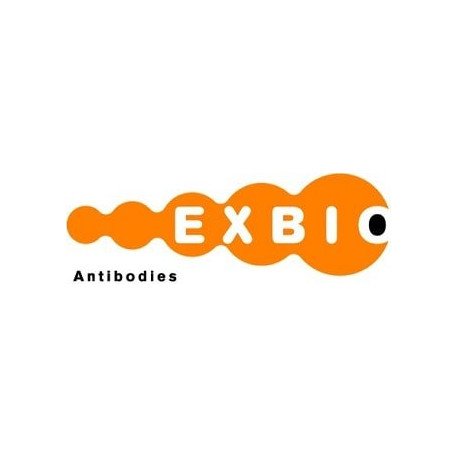Cart 0 Product Products (empty)
No products
To be determined Shipping
0,00 € Total
Prices are tax excluded
Product successfully added to your shopping cart
Quantity
Total
There are 0 items in your cart. There is 1 item in your cart.
Total products (tax excl.)
Total shipping (tax excl.) To be determined
Total (tax excl.)
Data sheet of Rat Monoclonal to CD44
| Brand | Exbio |
| Product type | Primary antibodies |
| Reactivity | Human, Mouse, Canine (Dog), Equine (Horse), Feline (Cat) |
| Clonality | Monoclonal |
More info about Rat Monoclonal to CD44
| Brand: | Exbio |
| Product no.: | 11-624-C100 |
| Product type: | Primary antibodies |
| Host species: | Rat |
| Product name: | Rat Monoclonal to CD44 |
| Antigen: | CD44 |
| Clonality: | Monoclonal |
| Clone: | IM7 |
| Isotype: | IgG2b |
| Immunogen: | Dexamethasone-induced cells of the SJL mouse spontaneous myeloid leukemia M1_x000D_ |
| Format: | purified |
| Specificity: | The rat monoclonal antibody IM7 reacts with CD44 antigen (Phagocyte glycoprotein 1), an 80-95 kDa transmembrane glycoprotein (hyaladherin family) present on the most of cells and tissues (leukocytes, endothelial cells, mesenchymal cells, etc.); it is negative on platelets and hepatocytes. The antibody reacts with all isoforms of mouse CD44._x000D_ |
| Categories: | CD Antigens & MHC (Veterinary), CD and Related Antigens & MHC (Rodent), CD and Related Antigens (Human) |
| Concentration: | 1 mg/ml |
| Storage buffer: | Phosphate buffered saline (PBS) with 15 mM sodium azide, approx. pH 7.4 |
| Storage / stability: | Store at 2-8°C. Do not freeze. Do not use after expiration date stamped on vial label. |
| Background: | CD44 is a transmembrane glycoprotein expressed on the surface of most cells, which serves as a receptor for hyaluronan. CD44 mediates angiogenesis, cell adhesion, proliferation and migration, it is thus important for lymphocyte activation, recirculation and homing. Although CD44 functions are essential for physiological activities of normal cells, elevated CD44 expression correlates with poor prognosis in many carcinomas, facilitating tumour growth and metastasis, antiapoptosis and directional motility of cancer cells._x000D_ |
| Purity: | > 95% (by SDS-PAGE) |
| Purification: | Purified by protein-A affinity chromatography |
| Product specific references: | *And many other._x000D_ , *Xu H, Manivannan A, Liversidge J, Sharp PF, Forrester JV, Crane IJ: Involvement of CD44 in leukocyte trafficking at the blood-retinal barrier. J Leukoc Biol. 2002 Dec;72(6):1133-41._x000D_ , *Larkin J, Renukaradhya GJ, Sriram V, Du W, Gervay-Hague J, Brutkiewicz RR: CD44 differentially activates mouse NK T cells and conventional T cells. J Immunol. 2006 Jul 1;177(1):268-79._x000D_ , *Si-Tahar M, Sitaraman S, Shibahara T, Madara JL: Negative regulation of epithelium-neutrophil interactions via activation of CD44. Am J Physiol Cell Physiol. 2001 Mar;280(3):C423-32._x000D_ , *Legg JW, Lewis CA, Parsons M, Ng T, Isacke CM: A novel PKC-regulated mechanism controls CD44 ezrin association and directional cell motility. Nat Cell Biol. 2002 Jun;4(6):399-407._x000D_ , *Katoh S, Matsumoto N, Kawakita K, Tominaga A, Kincade PW, Matsukura S: A role for CD44 in an antigen-induced murine model of pulmonary eosinophilia. J Clin Invest. 2003 May;111(10):1563-70._x000D_ , *McKallip RJ, Do Y, Fisher MT, Robertson JL, Nagarkatti PS, Nagarkatti M: Role of CD44 in activation-induced cell death: CD44-deficient mice exhibit enhanced T cell response to conventional and superantigens. Int Immunol. 2002 Sep;14(9):1015-26._x000D_ , *van Royen N, Voskuil M, Hoefer I, Jost M, de Graaf S, Hedwig F, Andert JP, Wormhoudt TA, Hua J, Hartmann S, Bode C, Buschmann I, Schaper W, van der Neut R, Piek JJ, Pals ST: CD44 regulates arteriogenesis in mice and is differentially expressed in patients with poor and good collateralization. Circulation. 2004 Apr 6;109(13):1647-52._x000D_ , *Hegde VL, Singh NP, Nagarkatti PS, Nagarkatti M: CD44 mobilization in allogeneic dendritic cell-T cell immunological synapse plays a key role in T cell activation. J Leukoc Biol. 2008 Jul;84(1):134-42._x000D_ , *Lesley J, Trowbridge IS: Genetic characterization of a polymorphic murine cell-surface glycoprotein. Immunogenetics. 1982 Mar;15(3):313-20._x000D_ |
| Related products: | - Rat Monoclonal to CD5 (mouse) - Rat Monoclonal to CD45 (mouse) - Rat Monoclonal to CD45R (human, mouse) |
| Shipping condition: | Room temperature |


